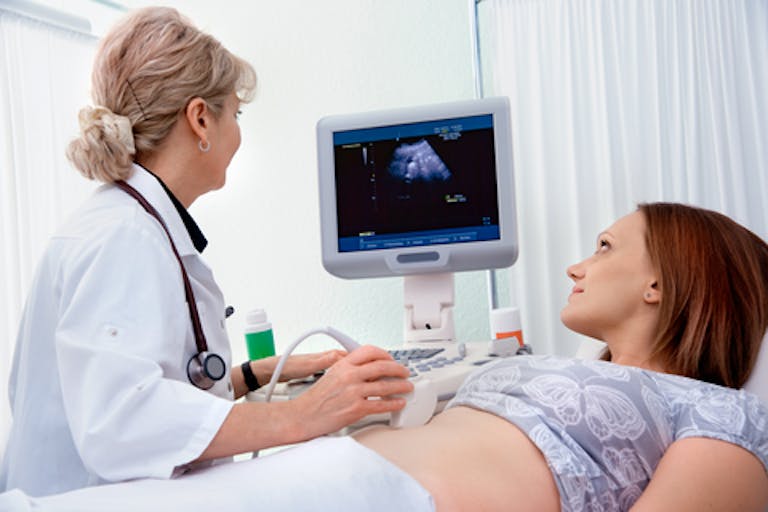
Judge overturns state’s mandate to check for dangerous ectopic pregnancy before giving abortion pill
Bridget Sielicki
·
Abortion Pill·By Bettina di Fiore
Woman’s death in India a reminder of ectopic pregnancy dangers with ‘no-test, self-managed’ abortion pill
The U.S. Food and Drug Administration has now loosened safety requirements for the abortion pill known as the REMS (Risk Evaluation and Mitigation Strategies), enabling women to obtain the regimen without first consulting a doctor and by mail. In addition, abortion industry spokespersons are pushing for the drug to be made available over-the-counter.
But there are reasons why those abortion pill safety requirements were enacted in the first place, and the now-approved “no-test” abortion pill protocol puts women at great risk.
A chilling, gruesome reminder of exactly that is described in a 2019 case report out of India. It details the researchers’ encounter with a woman who died after taking the abortion pill regimen while unwittingly experiencing an ectopic pregnancy. Although women are technically required to see a doctor and obtain a proper prescription for the abortion pill regimen in India, black market sales abound. Many women skip visiting a physician and obtain the regimen directly from pharmacies and other illicit outlets.
This 26-year-old unmarried client was one such woman. According to the report:
[She] had tested herself positive with a commercially available urine pregnancy test kit and then bought and used mifepristone and misoprostol from a pharmacy without consulting a doctor. She then developed acute abdominal pain and bleeding per vagina and died from haemorrhagic shock [due to a ruptured ectopic pregnancy].
Hospital doctors were unable to revive her in the emergency room. Her autopsy revealed 900 ml of blood and 250 g of blood clots in her abdominal cavity. Early diagnosis with a visit to a provider could have saved the woman’s life. Even an ultrasound beforehand — something no longer required in the United States due to the FDA’s loosening of REMS — could have identified an extrauterine pregnancy in time to prevent this tragic death.
READ: As U.S. FDA loosens abortion pill regulations, India warns of self-managed abortion dangers
Ectopic pregnancy occurs when the blastocyst implants outside of the uterus, most commonly in the fallopian tubes. The most common risk factors are history of pelvic inflammatory disease and the use of oral contraceptives. Other risk factors include age, history of infertility, smoking, history of ectopic pregnancy, and previous IUD use.
Article continues below
Dear Reader,
In 2026, Live Action is heading straight where the battle is fiercest: college campuses.
We have a bold initiative to establish 100 Live Action campus chapters within the next year, and your partnership will make it a success!
Your support today will help train and equip young leaders, bring Live Action’s educational content into academic environments, host on-campus events and debates, and empower students to challenge the pro-abortion status quo with truth and compassion.
Invest in pro-life grassroots outreach and cultural formation with your DOUBLED year-end gift!
Ectopic pregnancy is the most common cause of maternal death in India and the leading cause of first-trimester maternal death in the United States. Between 6 to 16% of pregnant women who go to the emergency room in the first trimester for bleeding and/or pain have an ectopic pregnancy. And yet now, thanks to the Biden-Harris FDA, women are being made to feel that obtaining the abortion pill with no in-person exam, no ultrasound to confirm an intrauterine pregnancy or gestational age, and no blood test to detect Rh factor (which can negatively impact future pregnancies) has little risk.
According to the case report, the risk of ectopic pregnancy is significant, and a “no-test” protocol is extremely dangerous:
In a study, 16 (0.8%) patients were diagnosed to have ectopic pregnancy based on vaginal ultrasound findings. Most (14/16, 87%) of the patients were in second gravida or above… History of intake of MA (mifepristone followed by misoprostol) was present in seven (43.75%) cases. All of the women were tested for pregnancy at home with commercially available kits. Five out of seven patients took the abortifacients (mifepristone followed by misoprostol) directly from a retail outlet without any prescription. Two patients did visit private doctors who prescribed them the MA. None of these patients was advised to have any pelvic USG to confirm intrauterine pregnancy before taking MA. While 4 out of 16 patients were treated medically (methotrexate), 12 cases underwent surgery. Out of 12 cases operated, eight (66.6%) had ruptured ectopic pregnancy, three tubal abortions and one chronic ectopic.6
Despite the risks, U.S. abortion proponents have been vigorously pushing for over-the-counter abortion pill distribution. And even as the U.S. loosens safety protocols, Indian officials have been warning of the dangers of so-called “self-managed” abortions — and little wonder. Research shows that the abortion pill is four times more dangerous for the mother than surgical abortion. One in 50 pregnancies are ectopic and require medical intervention. Research also shows that nearly 15% of women seeking the abortion pill, which is only approved for use up to the 10th week of pregnancy, underestimate the gestational age of their preborn children.
Furthermore, it has been found that one in 20 chemical abortions are incomplete, putting the woman at an increased risk of infection, sepsis, and even maternal death.
All of these factors make a so-called “self-managed,” “no-test” chemical abortion a very risky proposition even as abortion industry mouthpieces continue to push for a reduction in safety regulations and evasion of adverse event reporting.
Chemical abortions constitute an ever-increasing percentage of total abortions, and related hospital visits are also sharply on the rise. Under current conditions, we could see an ongoing increase in abortion pill-related maternal deaths and injuries — as the abortion industry continues to abdicate any responsibility whatsoever for the actual well-being of its abortion clients.
“Like” Live Action News on Facebook for more pro-life news and commentary!
Live Action News is pro-life news and commentary from a pro-life perspective.
Contact editor@liveaction.org for questions, corrections, or if you are seeking permission to reprint any Live Action News content.
Guest Articles: To submit a guest article to Live Action News, email editor@liveaction.org with an attached Word document of 800-1000 words. Please also attach any photos relevant to your submission if applicable. If your submission is accepted for publication, you will be notified within three weeks. Guest articles are not compensated (see our Open License Agreement). Thank you for your interest in Live Action News!

Bridget Sielicki
·
Abortion Pill
Carole Novielli
·
Abortion Pill
Bridget Sielicki
·
Abortion Pill
Carole Novielli
·
Abortion Pill
Bridget Sielicki
·
Abortion Pill
Bridget Sielicki
·
International
Bettina di Fiore
·
Human Rights
Bettina di Fiore
·
Politics
Bettina di Fiore
·
Human Interest
Bettina di Fiore
·
Activism
Bettina di Fiore
·